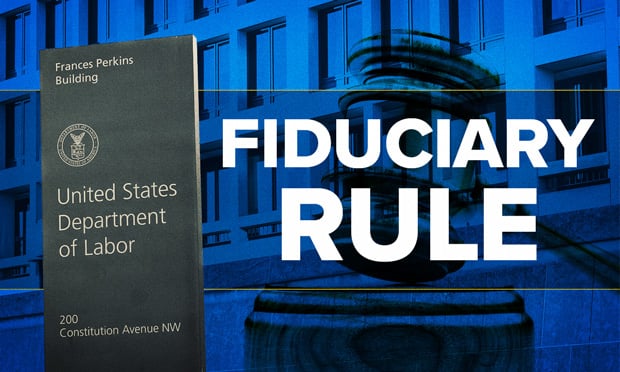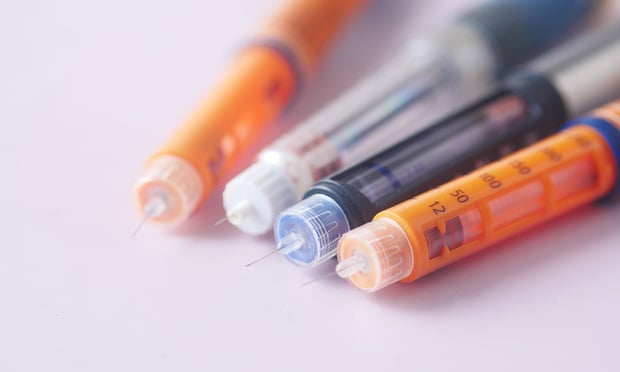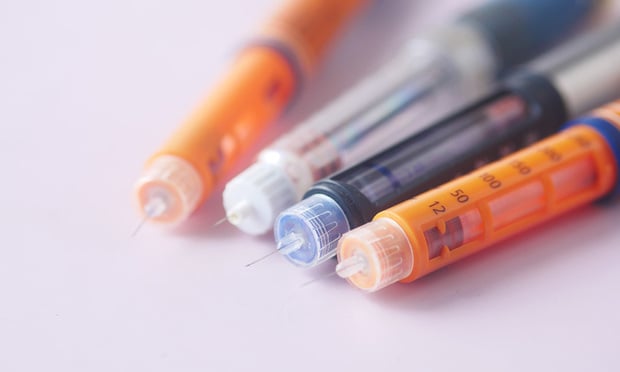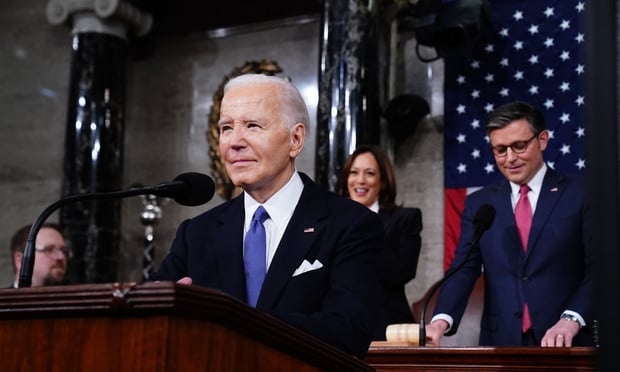MORE TO EXPLORE
Expert Perspectives is the home to the voices of industry leaders, as they share their expertise and insights directly from the field.
The Broker Innovation Lab celebrates brokers and other benefits stakeholders who have embraced the changing marketplace to position themselves and their business for future success
Media & Resources
Update
Resources

ArmadaCare
From ArmadaCare
Are brokers prepared for what’s next? See the 5 hot benefits trends shaping 2025 in this report.
Download Resource
New Benefits
From New Benefits
Rising costs & low engagement challenge employers. This HR Pulse Survey reveals key trends from HR leaders across various industries and looks at the opportunities for brokers to elevate service, address pain points, and demonstrate ROI, especially with non-insured benefits.
Download Resource
New Benefits
From New Benefits
Clients expect strategic advice, not just sales. This guide reveals 3 steps to audit benefits, fill gaps, and present holistic strategies that meet client goals and employee needs--positioning employee benefits brokers as trusted advisors.
Download Resource
ArmadaCare
From ArmadaCare
Discover how employer-paid supplemental health benefits can help close coverage gaps, reduce out-of-pocket costs, and boost retention!
Download Resource
TIAA
From TIAA
2025 is expected to bring increased market volatility, policy shifts, and new cybersecurity threats that could impact employee retirement savings. This white paper provides HR professionals with the insights they need to strengthen retirement benefits, support employee financial wellness, and navigate the evolving landscape with confidence.
Download Resource
TIAA
From TIAA
Following a year of relative market stability, 2025 is expected to bring increased market volatility, potential policy disruptions, and new cybersecurity threats that can put retirement savings at risk. This white paper equips advisory practices with crucial insights to navigate these challenges, implement effective lifetime income strategies, and guide clients toward a more secure retirement.
Download Resource
isolved
From isolved
HR teams are facing talent shortages, retention struggles, and evolving benefits needs. For benefits brokers, understanding how AI is impacting and modernizing the employee benefits landscape is crucial to strategically advising clients’ HR teams. This report offers key insights brokers can leverage to become a trusted advisor for their clients.
Download Resource
Nonstop Administration and Insurance Services, Inc.
From Nonstop Administration and Insurance Services, Inc.
A guide to closing more deals by strategically introducing alternative health plans
Download Resource
isolved
From isolved
Benefits brokers face unique challenges when advising on HR services, particularly for small to mid-sized businesses. Understanding these key challenges and client concerns, such as rising healthcare costs and FMLA compliance hurdles, is key for brokers to differentiate their services and stay competitive. Learn how to address evolving client needs in an uncertain economic landscape.
Download Resource
isolved
From isolved
Leave management can be costly and complex for your clients’ HR teams. You can help them reduce compliance risks and alleviate administrative burdens. This guide outlines best practices for federal and state job-protected leaves. Equip yourself with solutions to streamline leave management and position yourself as a strategic partner.
Download Resource
Zelis
From Zelis
The accuracy of your provider directories is vital to shaping your success. The guide provides actionable insights and best practices for ensuring the data you rely on is precise and trustworthy.
Download Resource
Labcorp
From Labcorp
High blood pressure affects nearly half of U.S. adults, increasing the risk of heart disease and stroke. This case study explores how an employer-sponsored wellness program helped approximately 1 in 3 employees improve their blood pressure risk level.
Download Resource
Labcorp
From Labcorp
Long onboarding times and staffing shortages create costly delays. Discover how one large healthcare system streamlined its hiring process, reducing onboarding time from weeks to days while improving the candidate experience and freeing up internal staff.
Download Resource
Trustmark Voluntary Benefits
From Trustmark Voluntary Benefits
Voluntary benefit elections are not what they used to be. The shift toward passive enrollments prevents employees from being actively engaged in the enrollment process, generating low participation rates and putting employers and insurers at risk. This guide explores a new approach to enrollment that combines facets of both traditional enrollment processes and the new self-service culture to increase engagement and boost participation.
Download Resource
ArmadaCare
From ArmadaCare
Get a handle on supplemental health insurance--fast. This quick-reference guide breaks down voluntary vs. employer-paid plans, coverage types, and when to recommend each. Ideal for brokers advising clients on modern benefits strategies.
Download Resource
Nationwide® pet insurance
From Nationwide® pet insurance
Today’s employees expect more than just health insurance. Learn how pet insurance is becoming a must-have voluntary benefit--especially for millennials and Gen Z. This infographic gives benefits brokers the data and insights needed to stay ahead in a competitive labor market.
Download Resource
Nationwide® pet insurance
From Nationwide® pet insurance
Millennials and Gen-Z are now the leading workforce generations, and employers are faced with the challenge of adapting to the new set of values they bring with them. These younger employees expect flexibility and benefits that support all aspects of their lives, including their pets. Discover how pet insurance can help strengthen client retention, meet expectations, and support recruitment goals.
Download Resource
Zelis
From Zelis
Inaccurate provider data can lead to frustrated clients and stress on your business relationships. These are the top do’s and don’ts to ensure the data you rely on as a benefits advisor is as accurate and helpful as possible.
Download Resource
LifeSecure Insurance Company
From LifeSecure Insurance Company
Employers are revamping their benefits strategies--but are they offering what employees truly want? Discover the seven key elements shaping workplace benefits in 2025 to help your clients enhance satisfaction, retention, and enrollment.
Download Resource
Nonstop Administration and Insurance Services, Inc.
From Nonstop Administration and Insurance Services, Inc.
In 2025, you are uniquely positioned to make a real difference for your clients--both financially and in the wellness of their employees. Full of tips ranging from goal setting to relationship building, this is your guide to being a better partner this year, and beyond.
Download Resource
Nonstop Administration and Insurance Services, Inc.
From Nonstop Administration and Insurance Services, Inc.
Explore alternative plan designs, including HSAs, HRAs, QSEHRAs, ICHRAs, and MERPs, in this brief e-book.
Download Resource
Nonstop Administration and Insurance Services, Inc.
From Nonstop Administration and Insurance Services, Inc.
Discover innovative solutions to help your clients overcome cost barriers in health insurance.
Download Resource
Nonstop Administration and Insurance Services, Inc.
From Nonstop Administration and Insurance Services, Inc.
Prioritizing health equity can transform your sales strategy and secure long-term business success. This guide helps you lead thoughtful conversations by aligning with employers' values.
Download Resource
Nonstop Administration and Insurance Services, Inc.
From Nonstop Administration and Insurance Services, Inc.
You can bet that many of your employer clients will be considering alternative funding models as they shop around for health plans this year. Download this short guide to learn about the difference between MERPs and HRAs, why they matter and how you can provide your clients with lower costs, more flexibility and greater satisfaction.
Download Resource
Zelis
From Zelis
Managing health plan data is complex and time-consuming. Brokers need seamless access to accurate, up-to-date provider and network information to effectively guide employers and beneficiaries. This resource explores how to streamline workflows, reduce manual data handling, and enhance decision-making with smarter solutions.
Download Resource
ArmadaCare
From ArmadaCare
Are HDHPs & HSAs really the best solution? Let’s take a closer look.
Download Resource
Nonstop Administration and Insurance Services, Inc.
From Nonstop Administration and Insurance Services, Inc.
Four industries, one health plan that delivers real savings and better benefits. See how a nonprofit, a wholesale distributor, a health center, and a school district reduced costs and eliminated copays and deductibles--without taking on additional risk. Download the case study bundle to explore how first-dollar coverage can make a difference for your clients.
Download Resource
ArmadaCare
From ArmadaCare
Help your clients make informed decisions about executive medical reimbursement plans while ensuring compliance amidst evolving regulations.
Download Resource
New Benefits
From New Benefits
Explore four strategies that benefits advisors can leverage to help their clients reduce healthcare expenses.
Download Resource
New Benefits
From New Benefits
This report reveals the top non-insured benefits that not only reduce costs but also address the rising challenges of burnout, financial stress, and work-life balance. Give your clients the edge they need to support their employees while driving business growth. Download the report now to learn more!
Download Resource
ArmadaCare
From ArmadaCare
Are brokers prepared for what’s next? See the 5 hot benefits trends shaping 2025 in this report.
Download Resource
New Benefits
From New Benefits
Rising costs & low engagement challenge employers. This HR Pulse Survey reveals key trends from HR leaders across various industries and looks at the opportunities for brokers to elevate service, address pain points, and demonstrate ROI, especially with non-insured benefits.
Download Resource
New Benefits
From New Benefits
Clients expect strategic advice, not just sales. This guide reveals 3 steps to audit benefits, fill gaps, and present holistic strategies that meet client goals and employee needs--positioning employee benefits brokers as trusted advisors.
Download Resource
ArmadaCare
From ArmadaCare
Discover how employer-paid supplemental health benefits can help close coverage gaps, reduce out-of-pocket costs, and boost retention!
Download Resource
TIAA
From TIAA
2025 is expected to bring increased market volatility, policy shifts, and new cybersecurity threats that could impact employee retirement savings. This white paper provides HR professionals with the insights they need to strengthen retirement benefits, support employee financial wellness, and navigate the evolving landscape with confidence.
Download Resource
TIAA
From TIAA
Following a year of relative market stability, 2025 is expected to bring increased market volatility, potential policy disruptions, and new cybersecurity threats that can put retirement savings at risk. This white paper equips advisory practices with crucial insights to navigate these challenges, implement effective lifetime income strategies, and guide clients toward a more secure retirement.
Download Resource
isolved
From isolved
HR teams are facing talent shortages, retention struggles, and evolving benefits needs. For benefits brokers, understanding how AI is impacting and modernizing the employee benefits landscape is crucial to strategically advising clients’ HR teams. This report offers key insights brokers can leverage to become a trusted advisor for their clients.
Download Resource
Nonstop Administration and Insurance Services, Inc.
From Nonstop Administration and Insurance Services, Inc.
A guide to closing more deals by strategically introducing alternative health plans
Download Resource
isolved
From isolved
Benefits brokers face unique challenges when advising on HR services, particularly for small to mid-sized businesses. Understanding these key challenges and client concerns, such as rising healthcare costs and FMLA compliance hurdles, is key for brokers to differentiate their services and stay competitive. Learn how to address evolving client needs in an uncertain economic landscape.
Download Resource
isolved
From isolved
Leave management can be costly and complex for your clients’ HR teams. You can help them reduce compliance risks and alleviate administrative burdens. This guide outlines best practices for federal and state job-protected leaves. Equip yourself with solutions to streamline leave management and position yourself as a strategic partner.
Download Resource
Zelis
From Zelis
The accuracy of your provider directories is vital to shaping your success. The guide provides actionable insights and best practices for ensuring the data you rely on is precise and trustworthy.
Download Resource
Labcorp
From Labcorp
High blood pressure affects nearly half of U.S. adults, increasing the risk of heart disease and stroke. This case study explores how an employer-sponsored wellness program helped approximately 1 in 3 employees improve their blood pressure risk level.
Download Resource
Labcorp
From Labcorp
Long onboarding times and staffing shortages create costly delays. Discover how one large healthcare system streamlined its hiring process, reducing onboarding time from weeks to days while improving the candidate experience and freeing up internal staff.
Download Resource
Trustmark Voluntary Benefits
From Trustmark Voluntary Benefits
Voluntary benefit elections are not what they used to be. The shift toward passive enrollments prevents employees from being actively engaged in the enrollment process, generating low participation rates and putting employers and insurers at risk. This guide explores a new approach to enrollment that combines facets of both traditional enrollment processes and the new self-service culture to increase engagement and boost participation.
Download Resource
ArmadaCare
From ArmadaCare
Get a handle on supplemental health insurance--fast. This quick-reference guide breaks down voluntary vs. employer-paid plans, coverage types, and when to recommend each. Ideal for brokers advising clients on modern benefits strategies.
Download Resource
Nationwide® pet insurance
From Nationwide® pet insurance
Today’s employees expect more than just health insurance. Learn how pet insurance is becoming a must-have voluntary benefit--especially for millennials and Gen Z. This infographic gives benefits brokers the data and insights needed to stay ahead in a competitive labor market.
Download Resource
Nationwide® pet insurance
From Nationwide® pet insurance
Millennials and Gen-Z are now the leading workforce generations, and employers are faced with the challenge of adapting to the new set of values they bring with them. These younger employees expect flexibility and benefits that support all aspects of their lives, including their pets. Discover how pet insurance can help strengthen client retention, meet expectations, and support recruitment goals.
Download Resource
Zelis
From Zelis
Inaccurate provider data can lead to frustrated clients and stress on your business relationships. These are the top do’s and don’ts to ensure the data you rely on as a benefits advisor is as accurate and helpful as possible.
Download Resource
LifeSecure Insurance Company
From LifeSecure Insurance Company
Employers are revamping their benefits strategies--but are they offering what employees truly want? Discover the seven key elements shaping workplace benefits in 2025 to help your clients enhance satisfaction, retention, and enrollment.
Download Resource
Nonstop Administration and Insurance Services, Inc.
From Nonstop Administration and Insurance Services, Inc.
In 2025, you are uniquely positioned to make a real difference for your clients--both financially and in the wellness of their employees. Full of tips ranging from goal setting to relationship building, this is your guide to being a better partner this year, and beyond.
Download Resource
Nonstop Administration and Insurance Services, Inc.
From Nonstop Administration and Insurance Services, Inc.
Explore alternative plan designs, including HSAs, HRAs, QSEHRAs, ICHRAs, and MERPs, in this brief e-book.
Download Resource
Nonstop Administration and Insurance Services, Inc.
From Nonstop Administration and Insurance Services, Inc.
Discover innovative solutions to help your clients overcome cost barriers in health insurance.
Download Resource
Nonstop Administration and Insurance Services, Inc.
From Nonstop Administration and Insurance Services, Inc.
Prioritizing health equity can transform your sales strategy and secure long-term business success. This guide helps you lead thoughtful conversations by aligning with employers' values.
Download Resource
Nonstop Administration and Insurance Services, Inc.
From Nonstop Administration and Insurance Services, Inc.
You can bet that many of your employer clients will be considering alternative funding models as they shop around for health plans this year. Download this short guide to learn about the difference between MERPs and HRAs, why they matter and how you can provide your clients with lower costs, more flexibility and greater satisfaction.
Download Resource
Zelis
From Zelis
Managing health plan data is complex and time-consuming. Brokers need seamless access to accurate, up-to-date provider and network information to effectively guide employers and beneficiaries. This resource explores how to streamline workflows, reduce manual data handling, and enhance decision-making with smarter solutions.
Download Resource
ArmadaCare
From ArmadaCare
Are HDHPs & HSAs really the best solution? Let’s take a closer look.
Download Resource
Nonstop Administration and Insurance Services, Inc.
From Nonstop Administration and Insurance Services, Inc.
Four industries, one health plan that delivers real savings and better benefits. See how a nonprofit, a wholesale distributor, a health center, and a school district reduced costs and eliminated copays and deductibles--without taking on additional risk. Download the case study bundle to explore how first-dollar coverage can make a difference for your clients.
Download Resource
ArmadaCare
From ArmadaCare
Help your clients make informed decisions about executive medical reimbursement plans while ensuring compliance amidst evolving regulations.
Download Resource
New Benefits
From New Benefits
Explore four strategies that benefits advisors can leverage to help their clients reduce healthcare expenses.
Download Resource
New Benefits
From New Benefits
This report reveals the top non-insured benefits that not only reduce costs but also address the rising challenges of burnout, financial stress, and work-life balance. Give your clients the edge they need to support their employees while driving business growth. Download the report now to learn more!
Download Resource
ArmadaCare
From ArmadaCare
Are brokers prepared for what’s next? See the 5 hot benefits trends shaping 2025 in this report.
Download Resource










